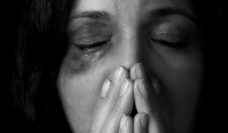As the United States has grown more diverse, it has become increasingly common to see Muslim women dressed in traditional attire in public. Indeed, few behaviors are more controversial in contemporary American society than the Islamic practice of hijab, women wearing veils or headscarves. Within the Islamic belief system, many Muslim women above the age of puberty wear the hijab to conform to precepts in the Quran that emphasize the importance of modesty.
Why is wearing a veil controversial? Although various explanations exist, many feminists and other Americans view veiling as an oppressive practice. Like other forms of oppression, veiling is believed to cause detrimental health effects, including elevated levels of depressive symptoms by, for instance, implicitly conveying the message that women are second-class citizens relative to men who are not required to veil.
Muslim women who chose to veil, however, have a different perspective. They tend to view hijab as liberating rather than oppressive. When asked why they veil, Muslim women offer a variety of reasons. Included among these are the belief that hijab represents: an expression of one’s spirituality, a way to convey modesty that fosters an internal sense of respect, a manifestation of one’s identity as a Muslim, a source of female empowerment, an expression of activism and pride, a means to command increased respect from men in social encounters, a mechanism to enhance emotional and physical intimacy in marriage, a source of emancipation or liberation from western fashion standards, a means to reject objectification and sexual exploitation, and an act of rebellion against western media messages.
Our results underscore the importance of listening to the voices of Muslim women.
The difference in opinions regarding veiling is not merely academic. The choice to wear or not wear a hijab has real life implications for Muslim women. The general perception that hijab is an unproductive, detrimental practice is widely disseminated by media to the broader society. As a result, women who veil may be viewed as less intelligent or enlightened relative to women who do not veil. Some observers have even called for hijab to be banned in certain public forms such as public schools. Indeed, in France, students are legally prohibited from veiling, or displaying other ostentatiously religious symbols, while in school.
To shed some light on this issue, my colleagues and I examined the relationship between veiling and depression with a diverse sample of Muslim women around the United States. We found no support for the common belief that wearing the hijab is linked to depression. In fact, we found the opposite. Muslims who reported wearing the hijab more frequently exhibited lower levels of depressive symptoms. Put differently, wearing a veil appears to protect Muslim women from depression.
Our results underscore the importance of listening to the voices of Muslim women. Efforts to discourage Muslim women from veiling are a violation of their internationally recognized human rights. Article 18 of United Nations’ Universal Declaration of Human Rights explicitly recognizes the right of women to express their religious beliefs in public settings. Women who choose to veil are simply expressing this fundamental right.
Photo by Janko Ferlič on Unsplash














